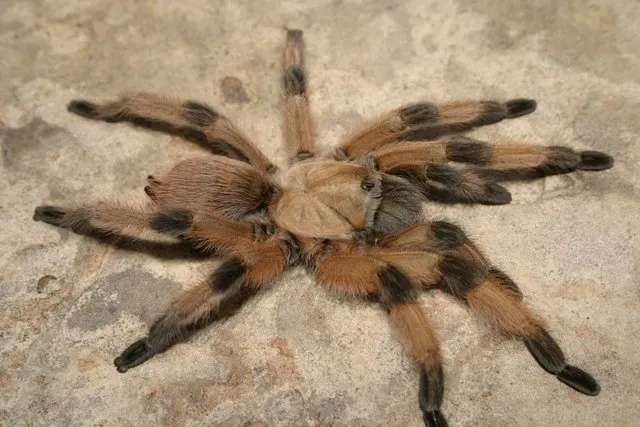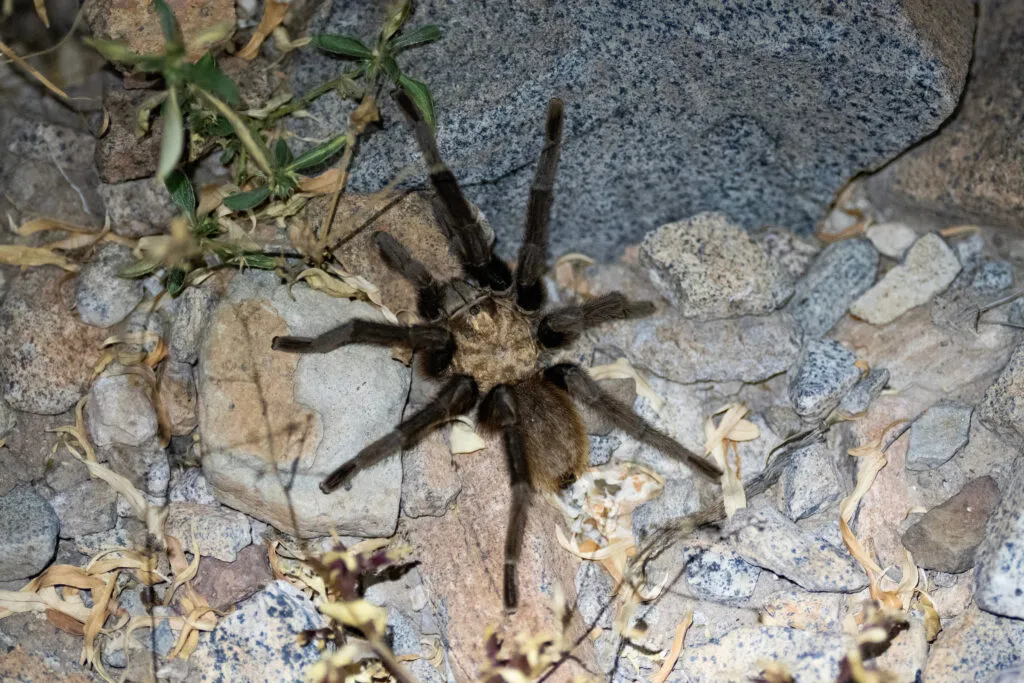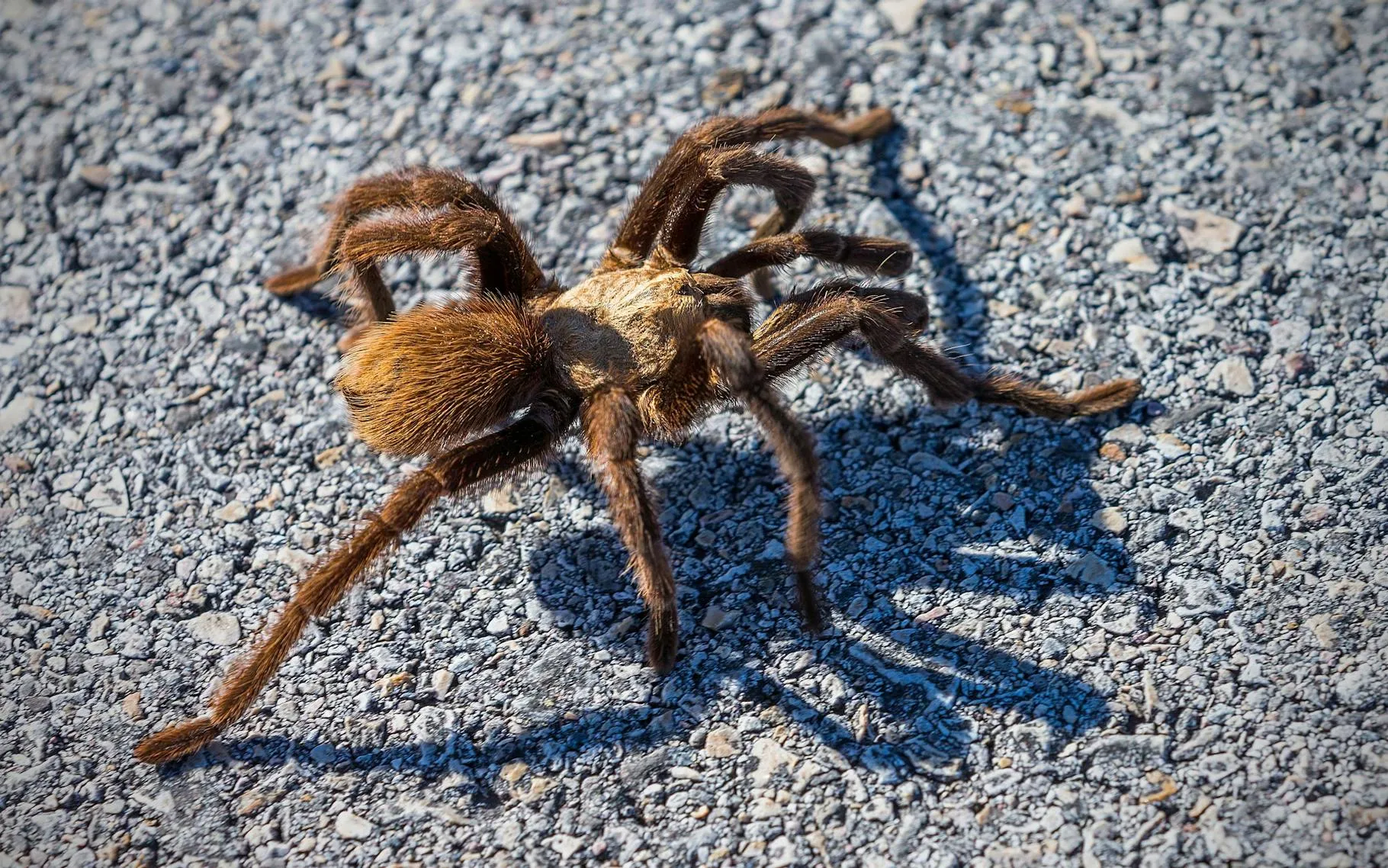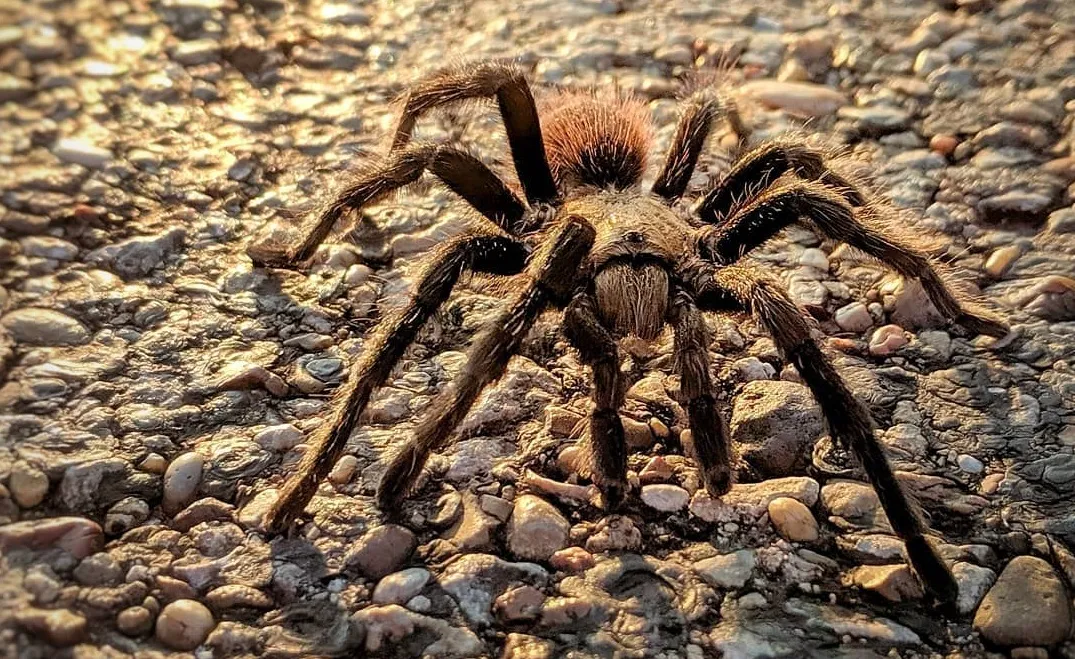Texas Tarantulas for Sale Top 5 Guide
Are you fascinated by the intricate beauty of the arachnid world and considering bringing a tarantula into your home? Texas, with its diverse climate and dedicated community of exotic pet enthusiasts, offers numerous opportunities for you to find the perfect eight-legged companion. This comprehensive guide unveils the top 5 reasons why owning a tarantula in Texas can be a rewarding experience, provides insights into choosing the right species, and offers valuable advice on responsible tarantula ownership. Whether you’re a seasoned arachnid aficionado or a curious newcomer, this guide will equip you with the knowledge to make an informed decision and embark on your tarantula-keeping journey with confidence. Buying a tarantula is more than just acquiring a pet; it’s a commitment to understanding and appreciating the marvels of nature.
Why Buy a Tarantula in Texas
Texas provides a unique environment for tarantula enthusiasts, with a thriving community and readily available resources. The state’s diverse climates, ranging from humid coastal regions to arid desert areas, can influence the types of tarantulas that thrive in captivity, allowing keepers to choose species suited to their specific environmental conditions. Moreover, Texas is home to numerous reputable breeders and pet stores specializing in exotic animals, making it easier to find a healthy tarantula and obtain expert advice. Owning a tarantula in Texas also offers a chance to connect with a passionate community of fellow keepers, sharing experiences, and learning from each other. The educational opportunities are also significant; tarantulas are amazing creatures to observe, providing a unique window into invertebrate behavior, and biology. This combination makes Texas a prime location for both novice and experienced tarantula keepers.
Examine Tarantula Types for Sale

When considering a tarantula for sale in Texas, it’s important to research the different types available. Their individual temperaments, sizes, and care requirements vary. Some species are known for their docile nature, making them suitable for beginners, while others are more reclusive or defensive. The diversity also extends to their appearance; vibrant colors and unique patterns add to the appeal. Some species are terrestrial, preferring to live on the ground, while others are arboreal, requiring a habitat that accommodates their climbing preferences. Understanding these differences will help you choose a species that fits your lifestyle and experience level. The key is to find a tarantula whose natural behaviors align with your ability to provide the appropriate environment. Carefully examine each species’ specific needs to ensure you can meet their requirements. Taking the time to research the different species ensures that you’ll be equipped with the knowledge to create a thriving environment for your new pet, ultimately leading to a rewarding experience for both you and your tarantula.
Texas Tarantula Species Overview
Texas is home to a variety of tarantula species, each with unique characteristics and care requirements. Knowing which species are available and how to care for them is crucial. Common options include the Mexican Red Knee and Texas Tan Tarantula, each offering distinct qualities. Researching the specific needs of the species will assist you in providing the best care. You’ll discover the importance of understanding their natural habitat, dietary needs, and potential health issues. This research will allow you to provide the best possible life for your new pet. These spiders are not all native to Texas; however, with the state’s focus on being an exotic pet hub, you’ll often be able to find different types of tarantulas here.
Mexican Red Knee Tarantula
The Mexican Red Knee (Brachypelma hamorii) is a popular choice among beginner tarantula keepers due to its docile nature and striking appearance. They are known for their vibrant red-orange markings on their leg joints, contrasting beautifully with their black body. These spiders are terrestrial, meaning they prefer to live on the ground. They are relatively slow-moving and easy to handle, making them a good option for those new to tarantula ownership. They require a habitat with appropriate substrate, temperature, and humidity levels. This species is known for its longevity, with females often living for over 20 years. They are relatively easy to feed, typically consuming crickets, roaches, and other insects. This combination of beauty, manageable temperament, and ease of care makes the Mexican Red Knee a fantastic option for those looking for a captivating and relatively low-maintenance pet.
Texas Tan Tarantula

The Texas Tan Tarantula (Aphonopelma anax) is a native species to Texas, providing an opportunity to connect with local wildlife. These spiders are typically brown or tan in color, blending well with their natural surroundings. They are known for their hardy nature and adaptability to various conditions, making them suitable for experienced and beginner keepers. As a terrestrial species, they require a habitat with plenty of substrate for burrowing and hiding. They are generally docile but can be defensive if provoked. They are long-lived, with females living for over a decade. Their care is similar to other terrestrial tarantulas, requiring a proper temperature, humidity, and access to food and water. Choosing the Texas Tan Tarantula allows you to support local wildlife and enjoy the beauty of a species uniquely adapted to the Texan environment. Keeping a Texas Tan is a great way to celebrate the state’s natural diversity.
How to Choose Your Tarantula
Choosing the right tarantula is an important decision that involves several considerations. Think about your experience level; beginner keepers might prefer docile species, while experienced keepers can manage more demanding ones. Also, consider the size of the tarantula and how much space you can provide. Research the adult size of the tarantula to ensure that your enclosure will accommodate it comfortably. Next, consider the tarantula’s temperament. While some species are calm and easy to handle, others are more defensive or reclusive. Also, research the tarantula’s specific care requirements, including temperature, humidity, substrate, and diet. Ensuring you can meet these needs will contribute to the tarantula’s health and happiness. Finally, think about your personal preferences in terms of appearance. Researching and understanding these factors will guide you in making an informed decision, leading to a rewarding experience. This commitment to a well-informed choice will give your tarantula the best life possible.
Factors to Consider When Purchasing
Several factors should be considered when purchasing a tarantula for sale in Texas. First, ensure the tarantula is healthy by checking for signs of illness, such as lethargy, loss of appetite, or unusual behavior. Inspect the tarantula’s appearance. Check its abdomen for any signs of injury or damage. Also, ensure the tarantula’s legs are intact and that it can move freely. Verify the seller’s reputation and knowledge. Purchase from reputable breeders or pet stores that prioritize animal welfare and provide expert advice. Inquire about the tarantula’s origin, age, and any previous health issues. This information can help you make an informed decision and ensure you’re not supporting unethical practices. Also, research the specific species’ care requirements and be prepared to provide an appropriate habitat. Make sure you have the necessary setup ready before you bring your tarantula home. This preparation shows commitment and care, ensuring that your new pet thrives in its new home. Prioritizing these factors will help you find a healthy and well-cared-for tarantula, setting the stage for a positive ownership experience.
Legality and Regulations in Texas

Before acquiring a tarantula in Texas, it’s essential to understand the local laws and regulations. Fortunately, tarantula ownership is generally legal in Texas. However, it is important to confirm any specific restrictions in your city or county, as local ordinances may exist. Certain species may be subject to specific regulations due to their potential impact on the local ecosystem. You must research and adhere to these rules to avoid legal issues. It’s also important to be aware of any permits or licenses required for keeping exotic pets, and to understand the potential implications of importing or exporting tarantulas across state lines. Responsible ownership includes understanding and complying with these regulations. Ignoring these could lead to penalties and the loss of your pet. Knowledge of the law helps ensure you can responsibly and legally enjoy your pet.
Where to Buy Tarantulas in Texas
Finding a reputable source for tarantulas is essential for a healthy and well-cared-for pet. There are several avenues available to acquire tarantulas for sale in Texas, each with its advantages and disadvantages. Researching and understanding these options will help you make an informed decision and find the perfect tarantula for your needs. From local breeders to online retailers, exploring the variety of available options is vital.
Local Breeders
Local breeders often provide the best opportunity to purchase healthy tarantulas. They typically specialize in a specific species, giving them in-depth knowledge of their care and behavior. Buying directly from a breeder allows you to learn more about the tarantula’s origins, health, and temperament. Local breeders are often passionate about their animals and are keen to provide advice and support to new owners. They can offer insights into breeding practices and provide accurate information about the tarantula’s lineage and health. Buying from a local breeder fosters a relationship built on trust and shared passion for the animal. They are often willing to help answer questions and assist you long after the purchase is made. Local breeders often offer a higher level of personalized service.
Pet Stores

Pet stores are a convenient option for acquiring tarantulas, with many offering a selection of tarantulas for sale in Texas. Pet stores provide an opportunity to see the tarantula in person before purchase. You can also buy the necessary supplies, such as enclosures, substrate, and food, all in one place. However, the staff’s knowledge can vary, and the animals may not always receive the same level of individual attention as those from specialized breeders. It is essential to check the tarantula’s health before buying. Be sure to inquire about its origin and care history. While pet stores are convenient, it’s important to do your research and choose a store with a good reputation and knowledgeable staff. Thoroughly inspecting the tarantula and its enclosure is crucial before making a purchase.
Online Retailers
Online retailers have expanded options for purchasing tarantulas in Texas. Online retailers offer convenience and often have a broader selection of species. You can compare different breeders and species from the comfort of your home. Many online retailers provide detailed information about the tarantulas, including photos, care instructions, and seller reviews. Be sure to research the retailer’s reputation, check customer reviews, and inquire about their shipping and guarantee policies. Verify their health and ensure they provide a safe and secure shipping environment. While online retailers can offer convenience and variety, it’s important to exercise caution and prioritize retailers with good reputations. Confirm that the retailer offers a guarantee on the health of the tarantula upon arrival. Careful research and due diligence are essential to a safe and successful online tarantula purchase.
Caring for Your New Tarantula
Taking care of your new tarantula is a crucial aspect of responsible ownership. Understanding the tarantula’s specific needs and providing a suitable environment are essential for its well-being. Preparing the habitat, providing the right food, and learning safe handling techniques will ensure that your pet thrives. Providing the proper care will not only keep your tarantula healthy and happy but also contribute to your enjoyment of the unique experience of tarantula ownership.
Setting Up the Habitat

Setting up the right habitat is one of the first and most important steps in caring for your tarantula. The ideal enclosure should be appropriately sized for the species and its size, allowing enough room for movement and providing a safe environment. The enclosure should provide adequate ventilation, preventing excessive moisture buildup. The substrate, such as coconut fiber or peat moss, should be appropriate for the species. Maintain the proper temperature and humidity levels based on the tarantula’s needs. Include elements such as a water dish, hiding places, and any necessary décor. A well-designed habitat replicates the natural environment of the tarantula, minimizing stress and promoting natural behaviors. Proper setup creates a comfortable and secure home for your tarantula, promoting its health, longevity, and overall well-being. This crucial step sets the stage for a rewarding experience, allowing you to enjoy the fascinating behaviors of your tarantula.
Feeding and Watering
Feeding and watering are fundamental aspects of caring for your tarantula. The diet of a tarantula primarily consists of insects, such as crickets, roaches, and mealworms, depending on the species and size of the spider. Offer food appropriate in size and quantity for the tarantula’s needs. Remove any uneaten food within 24 hours to prevent the buildup of mold and bacteria. Always provide fresh, clean water in a shallow dish. Ensure that the water dish is easily accessible. Refill the water dish regularly to maintain hydration. Adjust the feeding schedule depending on the tarantula’s age and feeding habits. Regular feeding and watering keep your tarantula healthy and active, allowing you to enjoy the wonders of tarantula behavior. Proper diet and hydration are essential for the well-being of your tarantula.
Handling and Safety
Handling your tarantula should be done with caution and awareness. Some species are docile and tolerate handling, but others are more defensive. When handling a tarantula, move slowly and avoid any sudden movements that could startle the spider. Handle the tarantula over a soft surface. This reduces the risk of injury if it falls. Always wash your hands thoroughly before and after handling the tarantula. Be aware of the tarantula’s defensive behaviors, such as flicking hairs or raising its front legs. If you are bitten, seek medical attention. Handling should be kept to a minimum and only undertaken when necessary. Prioritize your safety and the tarantula’s well-being. Following these safety guidelines ensures both a safe and a rewarding experience for both you and your tarantula.
Common Health Issues

While tarantulas are relatively hardy creatures, they can still experience health issues. Being able to identify and address these problems is an essential part of responsible tarantula ownership. Look out for signs of illness, such as loss of appetite, lethargy, or unusual behavior. Regularly inspect the enclosure for mold or other unhealthy conditions. Ensure the proper temperature and humidity levels. Provide a balanced diet and clean water. If you notice any health concerns, consult with a veterinarian specializing in exotic animals or a knowledgeable breeder. Early detection and prompt treatment are key to ensuring the health and longevity of your tarantula. Regular observation and preventative care will contribute to a happy, healthy pet.
Conclusion
Owning a tarantula in Texas can be a rewarding experience, offering a unique opportunity to connect with the fascinating world of arachnids. By researching different species, finding a reputable seller, providing the proper care, and understanding the legalities involved, you can create a thriving environment for your tarantula. Responsible ownership, combined with a passion for these amazing creatures, will lead to a fulfilling experience. As you embark on your journey as a tarantula keeper, you’ll discover the beauty, diversity, and captivating behaviors of these incredible animals. Embrace the opportunity to learn, observe, and appreciate the unique world of tarantulas, making your experience in Texas a truly memorable one. Your dedication to proper care will make your tarantula thrive.
